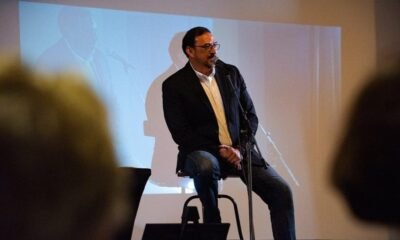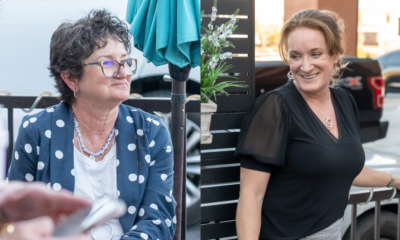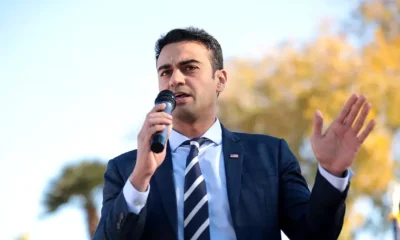2024 Election News
Avoiding Controversy: Consultants Warn Nonpartisan Stance Could Undermine Recorder Race

Republican candidate for Maricopa County Recorder, Justin Heap, asserts that elections are a “nonpartisan issue,” yet his campaign appears to be heavily focused on rallying conservative support. Political analysts warn that this strategy may alienate moderate and independent voters who hold significant sway in the upcoming election.
Heap, currently serving as a state lawmaker, has increasingly utilized social media to outline his campaign activities. Notably, many of these events have been rooted in Republican gatherings, legislative district meetings, or events associated with Turning Point USA. Despite this, Heap maintains that he is engaging with independent and Democratic voters during these occasions.
“One of my absolute favorite moments on the campaign trail was being able to meet almost every single attendee at the RFK, Jr. & Tulsi Gabbard rally,” he shared in a recent X post. Heap argued that the crowd consisted of “thousands of Independents and Democrats!”
This narrative echoes his comments during former President Donald Trump’s rally on August 23, where he extended an invitation to “independents and Democrats in the room” to support him. However, Heap faced backlash on social media after posting a photo of himself with a voter clad in Trump merchandise, claiming to engage with a diverse political spectrum.
Political consultants have expressed confusion over Heap’s campaign strategy, particularly given the considerable number of independent voters in Maricopa County. “Elections are often decided by moderate voters, and by not addressing this demographic, Heap risks undermining his own candidacy,” stated Tyler Montague, a Republican consultant.
At a recent Turning Point event in Peoria, Heap emphasized the importance of mobilizing Republicans who abstained from voting in 2022, arguing that their participation could lead to a significant victory. “If they turn out, it will be a landslide victory,” he declared, underscoring his belief that rallying his party’s base is key to success.
Nonetheless, many Republicans have shifted their support toward Heap’s Democratic opponent, Tim Stringham, following the recent primary defeat of incumbent recorder Stephen Richer. Montague noted that Heap’s alignment with controversial figures like Trump and Kari Lake may further alienate potential supporters.
During the same Turning Point event, Heap appeared alongside Abe Hamadeh, who has publicly questioned the legitimacy of the 2020 election. Heap’s avoidance of questions regarding this fallout has raised eyebrows, leading some to speculate about his ability to connect with a broader audience.
Heap attempted to convey a nonpartisan stance, promising that partisanship would cease upon his election. “Once I am elected, the partisanship stops,” he told attendees, asserting that he would treat all candidates and ballots equitably. Despite these claims, analysts remain skeptical about whether his messages resonate meaningfully with non-Trump-aligned voters.
Montague remarked that while Heap may encounter some sympathetic independent or Democratic voters, his outreach is unlikely to make a significant impact. He emphasized that Heap seems to prefer conservative events where he avoids tough questions, especially regarding the 2020 election results.
Conversely, Stringham has actively participated in debates, positioning himself to address genuine concerns among Republican voters. Democratic consultant Rodd McLeod highlighted the importance of engaging with local media, particularly for candidates with lower name recognition or campaign resources. “He isn’t doing this because he’s just a creature of MAGA politics,” McLeod commented on Heap’s limited outreach.
After his remarks at the Turning Point event, Heap declined to answer questions from Arizona Capitol Times, citing another campaign commitment, and did not respond to follow-up inquiries. McLeod noted that Heap’s avoidance of broader voter engagement diminishes his chances of winning over critical undecided voters ahead of the November election.

















